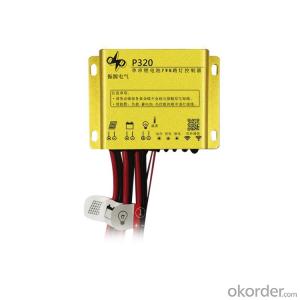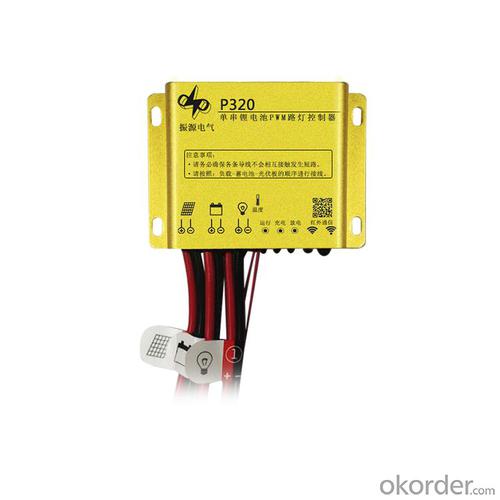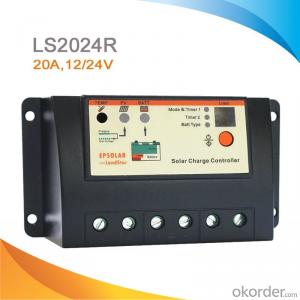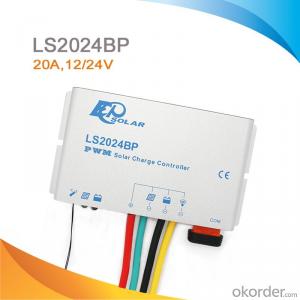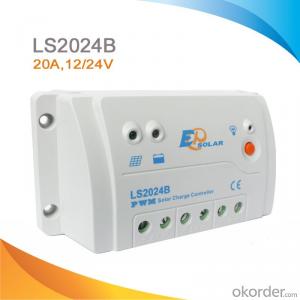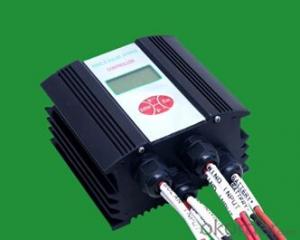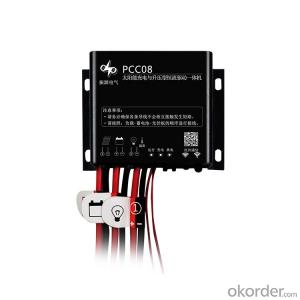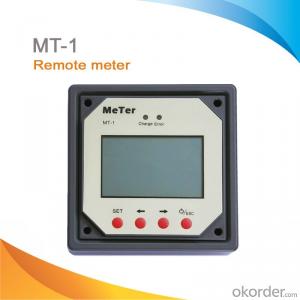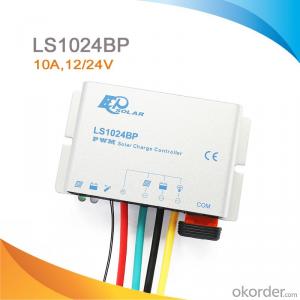Blue Sky Solar Charge Controllers 3v Lithium Battery PWM Solar Charge Controller for 20w Solar Street Light
- Loading Port:
- China main port
- Payment Terms:
- TT OR LC
- Min Order Qty:
- 1 pc
- Supply Capability:
- 20000 pc/month
OKorder Service Pledge
OKorder Financial Service
You Might Also Like
1.Product description of 3.2V/3.7V PWM Solar Charge Controller for Li-ion Battery 20W
*Specially designed for singe-string li-ionbattery system
*Parallel battery cells and easy to PACK
*No need to add protection board
*Low requirement to battery cell.
*High-usage to battery.
*Simple require to pack of battery to reduce the cost of produce battery.
2. Product features of 3.2V/3.7V PWM Solar Charge Controller for Li-ion Battery 20W
-More convenient
*Read and setting parameters by wireless remote controller
*Start via mini remote controller
*Dimming light range via mini remote controller
-High compatibility
*MPPT tracing range from 5-25V,Compatible 18V solar Panel.
*Step-up boost current drive
-Minimal power consumption
*The current consumption≤0.05W
-Intelligent management function
*According battery capacity to adjust output power
*System setting parameter to make sure lighting whole year.
3. Product image of 3.2V/3.7V PWM Solar Charge Controller for Li-ion Battery 20W
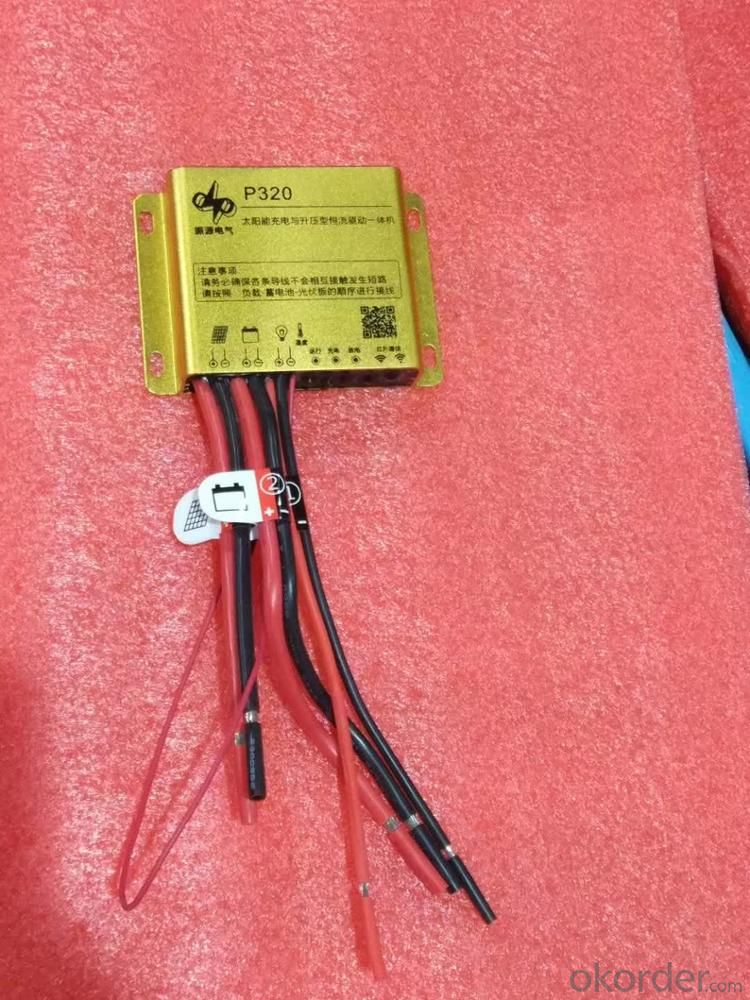
4. Range of application
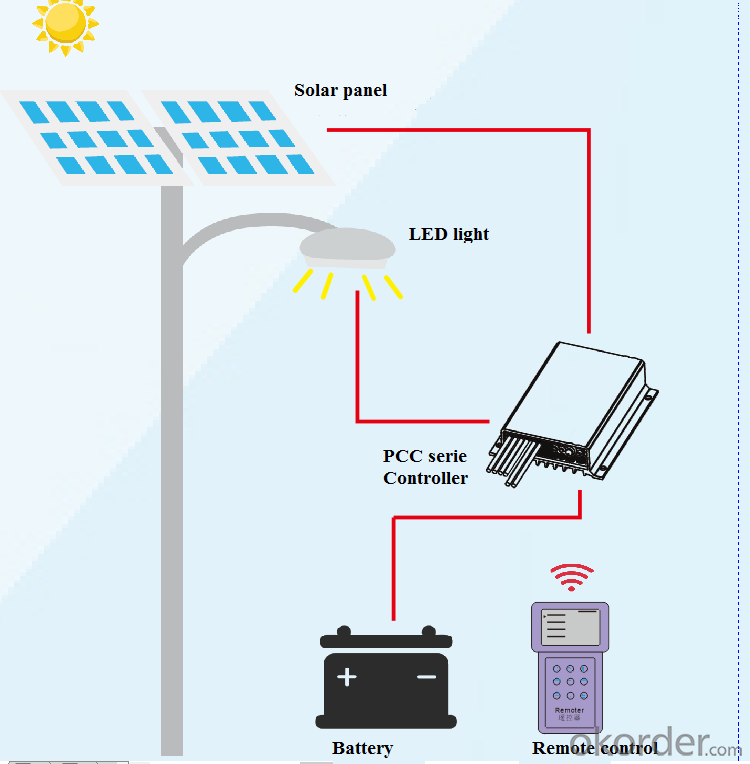
5. Drive LED efficiency
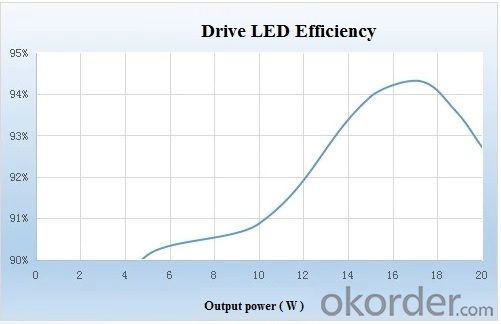
6.FAQ
Q: DO YOU HAVE ANY CERTIFICATION FOR YOUR PRODUCTS ?
A: We have ISO9001:2015,CE、RoHS certifications for all of our products.
Q: DO YOU HAVE MOQ FOR PLACE ORDER?
A: Low MOQ, 1pc for sample checking is available
- Q: Can a solar controller prevent overcharging of batteries?
- Preventing overcharging of batteries is one of the key functions of a solar controller. Also referred to as a charge controller or regulator, it plays a vital role in a solar power system by regulating the voltage and current that flows from the solar panels to the batteries. Its primary purpose is to protect the batteries from overcharging, as this can result in reduced battery life and potential damage. The solar controller constantly monitors the voltage and state of charge of the batteries, making adjustments to the charging current as necessary. When the batteries reach full charge, the solar controller prevents any further charging by redirecting the excess energy generated by the solar panels. Typically, this is achieved by either reducing the charging current or disconnecting the panels from the batteries. In addition to its basic functions, some advanced solar controllers offer additional features such as temperature compensation and equalization charging. Temperature compensation ensures optimal battery performance and longevity by adjusting the charging voltage based on the battery temperature, preventing overcharging or undercharging in different environmental conditions. On the other hand, equalization charging is a controlled overcharging process that is performed periodically to balance the battery cells and eliminate sulfation, ultimately enhancing battery performance. In summary, a solar controller is an indispensable component in a solar power system that safeguards the batteries against overcharging. Its presence ensures the longevity and optimal performance of the batteries, making it an essential aspect of any solar setup.
- Q: Are there any safety precautions I should take when using a solar controller?
- Yes, there are several safety precautions to consider when using a solar controller. Firstly, it is important to ensure that the solar controller is installed and wired correctly according to the manufacturer's instructions. This includes connecting the solar panels and batteries properly and securely. Additionally, it is crucial to use proper grounding techniques and follow electrical safety guidelines to prevent electrical shocks or fires. Furthermore, it is recommended to regularly inspect the solar controller for any signs of damage or wear, and to keep it away from water or other potentially hazardous environments. Lastly, it is advisable to familiarize yourself with the solar controller's manual and safety guidelines to ensure safe and efficient operation.
- Q: Can a solar controller be used with solar panel ground screws?
- Yes, a solar controller can be used with solar panel ground screws. A solar controller is responsible for regulating the amount of electricity flowing from the solar panels to the batteries. The use of ground screws to secure the solar panels does not affect the compatibility or functionality of the solar controller.
- Q: How do I choose the right solar controller for my solar panel system?
- To choose the right solar controller for your solar panel system, you should consider a few key factors. Firstly, determine the voltage and current rating of your solar panels to ensure compatibility with the controller. Next, assess the type of battery you are using and choose a controller that supports the appropriate charging method for that battery type (e.g., PWM or MPPT). Additionally, consider the maximum system voltage and ensure it matches or exceeds your panel and battery configuration. Finally, evaluate the controller's features, such as temperature compensation, advanced monitoring capabilities, and efficiency, to select one that aligns with your specific needs and preferences.
- Q: Can a solar controller be used in a solar-powered marine system?
- Yes, a solar controller can be used in a solar-powered marine system. A solar controller regulates the voltage and current from the solar panels to ensure optimal charging of the batteries. It is a crucial component in any solar-powered system, including marine systems, as it helps protect the batteries from overcharging and maximizes their lifespan.
- Q: What is the maximum power rating of a solar controller?
- The maximum power rating of a solar controller typically depends on the specific model and brand. However, in general, solar controllers are available in a range of power ratings, with some capable of handling lower wattage systems (e.g., 10-20 watts) and others designed for higher wattage systems (e.g., 100-200 watts or more).
- Q: How does a solar controller handle battery capacity testing and calibration?
- The management of battery charging and discharging in a solar power system is overseen by a solar controller. To conduct battery capacity testing and calibration, the solar controller utilizes several important techniques. First and foremost, battery capacity testing is performed by the solar controller. This involves discharging the battery in controlled conditions to ascertain its real capacity. The controller may periodically conduct this test to evaluate the battery's well-being and ensure accurate monitoring of its capacity. Throughout the test, the solar controller accurately calculates the battery's capacity by monitoring its voltage, current, and temperature. Moreover, the solar controller often incorporates features for battery capacity calibration. This allows the controller to adjust its charging and discharging algorithms based on the battery's actual capacity. By calibrating the system to match the battery's true capacity, the solar controller can optimize the charging process, prevent overcharging or undercharging, and prolong the battery's lifespan. Calibration may involve modifying charge and discharge thresholds, compensating for temperature fluctuations, and fine-tuning charging parameters to align with the battery's unique characteristics. To effectively handle battery capacity testing and calibration, a solar controller typically requires precise voltage and current sensors, as well as temperature sensors to monitor the battery's conditions. These sensors assist the controller in collecting the necessary data for testing and calibration, ensuring accurate and reliable measurements. It is important to note that the specific methods and features for battery capacity testing and calibration may vary among different solar controller models and manufacturers. In conclusion, a solar controller manages battery capacity testing and calibration by utilizing battery capacity testing procedures to evaluate the battery's health and accurately determine its capacity. The controller also integrates calibration features to adjust charging and discharging algorithms based on the battery's actual capacity, optimizing the system's performance and extending the battery's lifespan.
- Q: How does a solar controller handle the protection against lightning strikes?
- A solar controller typically does not provide direct protection against lightning strikes. However, it can indirectly help protect the solar panels and other equipment by regulating the flow of electricity and mitigating potential damage caused by power surges or voltage spikes that may occur during a lightning strike. Additionally, proper grounding and the use of surge protection devices in the overall solar system installation can further enhance its resilience against lightning strikes.
- Q: What is the maximum number of load control timers supported by a solar controller?
- The maximum number of load control timers supported by a solar controller can vary depending on the specific model and manufacturer. However, many solar controllers typically support multiple load control timers, ranging from around 10 to 30 timers or even more in some advanced models.
- Q: What is the maximum charging efficiency of a solar controller?
- The maximum charging efficiency of a solar controller typically ranges between 90% and 95%, depending on the specific model and brand.
Send your message to us
Blue Sky Solar Charge Controllers 3v Lithium Battery PWM Solar Charge Controller for 20w Solar Street Light
- Loading Port:
- China main port
- Payment Terms:
- TT OR LC
- Min Order Qty:
- 1 pc
- Supply Capability:
- 20000 pc/month
OKorder Service Pledge
OKorder Financial Service
Similar products
Hot products
Hot Searches
Related keywords
